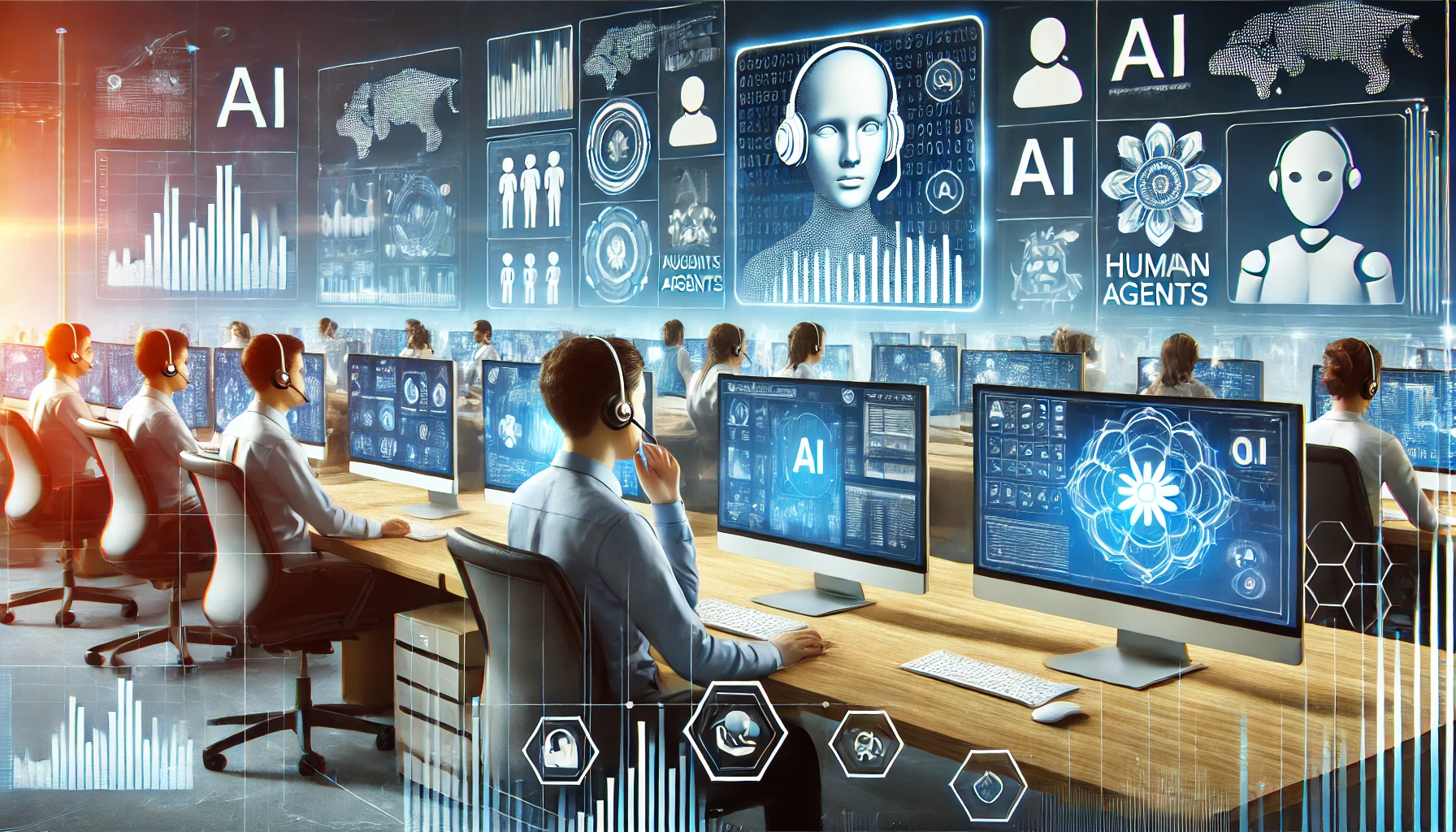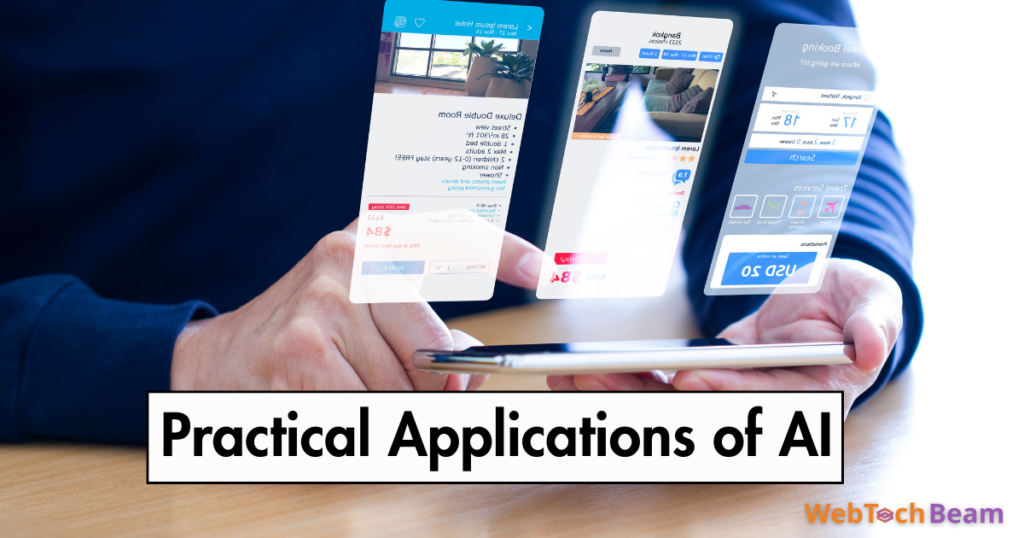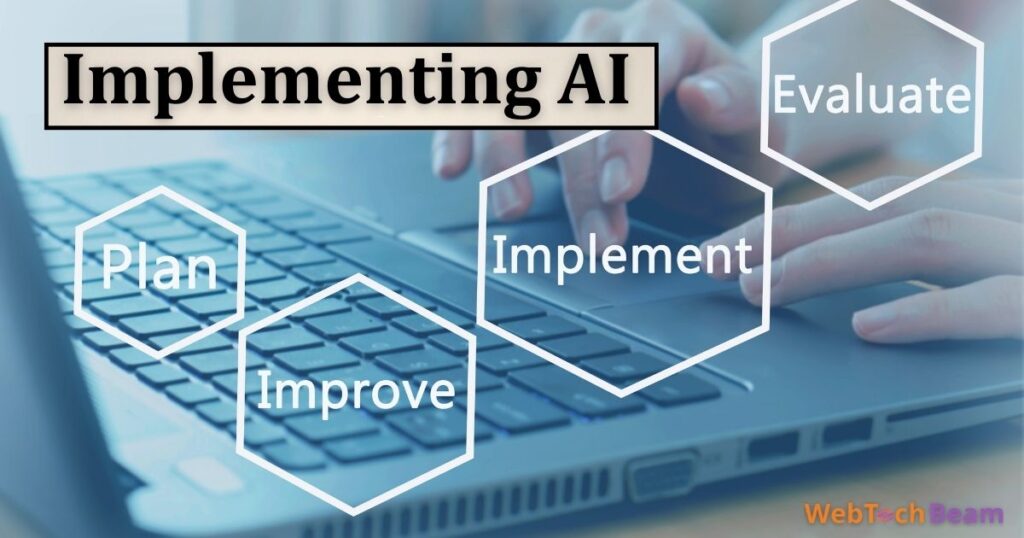Understanding the Pros and Cons of AI-Powered Call Centers

Can you imagine a world where your contact center operates 24/7? It responds quickly to customer inquiries and delivers high-quality service without employee burnout. AI makes this possible, making the dream of efficient call centers a reality. AI-powered call centers revolutionize how businesses interact with customers.
They offer unparalleled levels of efficiency and personalization. By adopting AI technologies, businesses can reduce expenses while boosting customer satisfaction. This approach enhances operational efficiency, ensuring better service for all. Exploring the pros and cons of AI-powered call centers can help businesses make informed decisions.
Benefits of AI in Call Centers
Here are some benefits of AI in call centers:
Efficiency and Productivity
AI calling solutions can simultaneously handle many calls, something human agents cannot achieve. AI-driven systems, such as chatbots and voice assistants, are designed to manage repetitive tasks with speed and precision.
Human agents are free to work on more delicate and complicated client situations that call for a personalized touch thanks to this technology. As a result, AI raises the call center’s general productivity and guarantees that consumers get prompt answers to their questions.
Enhanced Customer Satisfaction
Improving patron satisfaction is one of the giant benefits of AI in call centers. AI technology ensures clients receive the statistics they want speedily by promptly responding to their requests, reducing wait instances.
AI may also be designed to recognize and react to a wide range of client emotions, enhancing interactions’ personalization. This level of customization and responsiveness results in increased client satisfaction and loyalty.
Cost Savings
Integrating AI into contact centers can result in significant fee savings. Unlike human sellers who won’t pay perks and breaks, AI structures can work continuously without incurring extra costs. AI lowers the need for a large group of workers by automating repetitive approaches, which may lessen operating charges.
Furthermore, because AI can do jobs faster than human sellers, productivity can be raised, and errors and transformation charges can be reduced.
Data-Driven Insights
Artificial intelligence (AI) technologies provide precious data-driven insights that can enhance touch middle operations. Artificial intelligence (AI) can spot patterns and developments in patron comments and interplay facts that human employees might omit.
Processes may be made extra green, schooling substances can be stepped forward, and customer support approaches can be created with those insights.
Predictive analytics may also anticipate clients’ needs and behaviours, enabling name centres to anticipate troubles before they arise and customize their offerings to meet healthy patron expectations.
Practical Applications of AI

When you contact a customer care line, picture yourself being met by a helpful, kind representative who can respond to your inquiries immediately.
One of the many valuable uses of AI in call centers is improving customer service.
Chatbots and Virtual Assistants
Virtual assistants and chatbots are two of the most popular AI applications in call centers. These AI systems can answer common queries, like checking account balances or changing passwords, without the need for human participation.
Since they are open around the clock, clients can get assistance whenever needed. This increases customer satisfaction while freeing human agents to solve more complicated problems.
Voice Recognition and Speech Analytics
Speech analytics and voice recognition are revolutionizing call center function. AI-driven voice recognition can comprehend and analyze human speech, enabling users to communicate with the system naturally.
Real-time speech analytics analysis of conversations can give agents recommendations and insights to enhance customer interactions and more effective and efficient communication results.
Predictive Analytics
Another practical use of AI in call centers is predictive analytics. AI can forecast customers’ future wants and behaviours by examining previous exchanges and client information. This makes it possible for call centers to anticipate problems before they arise and customize their offerings to match clients’ needs.
AI, for example, may recognize which clients are most likely to leave and notify agents to provide retention incentives.
Automated Call Routing
AI can help enhance call routing by automatically connecting calls to the best agent or department based on the consumer’s needs.
This guarantees that clients are promptly connected to the appropriate individual, reducing wait periods and enhancing the general customer experience.
Personalized Customer Service
Increasing client happiness requires personalization. AI is capable of analyzing consumer data to offer tailored advice and solutions.
An artificial intelligence system can identify repeat customers and customize its responses according to their past interactions and preferences. Customers feel understood and appreciated when they receive this level of individuality.
Challenges of Implementing AI

Even though artificial intelligence (AI) has many advantages, call centers have unique difficulties when integrating AI.
Businesses hoping to adopt AI successfully must recognize these obstacles.
Lack of Empathy
The absence of empathy in AI is one of the main issues with contact centers. No matter how sophisticated, AI systems will never be able to match human agents’ emotional intelligence.
This can be a significant disadvantage when handling delicate or complicated client issues that need human intervention.
Companies must balance deploying AI for repetitive work and maintaining human agents for more complex exchanges.
Technical and Integration Issues
Implementing AI in contact centers technologically can be challenging. Integrating AI systems with the current infrastructure requires a lot of effort and money.
Compatibility problems arise, and intensive staff training is necessary to properly use and oversee the new technology. AI systems must be updated and maintained regularly to perform at their best.
High Initial Costs
Implementing AI might come with a hefty upfront investment. There are substantial up-front costs associated with creating and implementing AI systems. This covers the price of gear, software, and staff training.
Even though AI can save money over time, some organizations may find the upfront outlay prohibitive.
Customer Resistance
Customers who would rather chat with a human agent may be reluctant to use AI technologies. This resistance may stem from mistrusting AI or discontent with past encounters.
Companies need to make sure AI improves rather than diminishes the client experience. This reluctance can be lessened by maintaining a high service standard and clearly communicating AI’s advantages.
Dependence on Data Quality
Data is essential for AI systems to work well. Inadequate or deficient data can result in imprecise forecasts and less-than-ideal outcomes.
Data must be accurate, current, and clean to ensure that AI produces the intended results. Businesses must invest in solid data management processes to support their AI projects.
Businesses may use AI in their contact centers more successfully if they recognize and solve these issues.
Businesses can navigate the challenges of implementing AI while improving customer service by balancing AI and human expertise.
Balancing AI and Human Agents
How can you have the best of both worlds in a call center? AI and human operators can work together to improve customer service without losing personalization.
This strategy uses AI and human strengths to produce a smooth and practical client experience.
Utilizing AI for Routine Tasks
AI is quite good at managing repetitive and routine jobs. Call centers can free human agents to work on more intricate and subtle consumer concerns by automating these chores.
AI, for instance, can handle simple queries, handle transactions, and provide prompt answers to frequently asked questions. This guarantees that human agents can handle circumstances requiring empathy and critical thought and speed up the service.
Enhancing Human-AI Collaboration
AI and human-agent collaboration can significantly enhance call center performance. AI can help agents by offering recommendations and real-time data while interacting with customers.
AI, for example, can evaluate client data and recommend tailored solutions, assisting agents in resolving problems more quickly. This collaboration ensures that customers receive accurate and relevant information quickly.
Training and Development
Human agents must have the proper training and development to implement AI effectively. Agents must be proficient in using AI technologies and maximizing AI’s insights.
Agents are guaranteed to maintain their proficiency with AI systems and their ability to adjust to new technologies as they emerge through ongoing training. A call center that combines AI with skilled human workers is more responsive and dynamic.
Maintaining a Human Touch
Even with AI’s increasing efficiency, human interaction is still vital in customer support. AI cannot replace the empathy, comprehension, and emotional intelligence humans offer to encounters.
Ensuring the availability of human agents to handle intricate and delicate matters fosters consumer confidence and rapport. A balanced strategy keeps the human components that distinguish excellent customer service while leveraging AI to increase efficiency.
Future Trends and Developments
Are you curious about what’s next for AI in call centers? The future holds exciting possibilities as technology continues to evolve.
Here are some trends and developments to watch for in the coming years.
Advanced Natural Language Processing (NLP)
The subject of natural language processing, NLP, is predicted to boost similarly. Future traits in NLP will permit AI systems to realize client inquiries and offer more contextual and accurate responses.
Customers will receive even more efficient and fulfilling AI-driven customer care due to these more organic and meaningful interactions.
Emotion AI
The growing field of “emotion AI” or “affective computing” can identify and react to human emotions.
In the future, AI systems can recognize emotional signs in consumer text or speech, enabling more suitable and sympathetic responses.
This innovation will improve customer experience by bridging the gap between AI efficiency and human empathy.
AI-Powered Predictive Analytics

AI-powered predictive analytics will play a more significant role in call centers. By evaluating enormous volumes of data, Artificial Intelligence (AI) can forecast consumer behavior, spot trends, and foresee demands.
Thanks to this proactive approach, call centers can handle problems before they happen and customize their offerings to match changing client demands. The outcome will be a more proactive and individualized customer service experience.
Integration with Omnichannel Platforms
Call centers will use AI in the future, requiring smooth omnichannel platform connectivity. Today’s consumers communicate with businesses using various platforms, such as social media, chat, email, and phone.
AI will make a cohesive strategy possible, guaranteeing adequate and consistent service at every touchpoint. Regardless of how consumers choose to contact us, this integration will offer a consistent experience.
Continuous Learning and Adaptation
Over time, AI systems will keep learning and evolving. AI can now analyze fresh data and client interactions to enhance its performance thanks to advances in machine learning.
This continuous learning process keeps AI systems current and valuable and allows them to adjust to users’ demands and preferences. Call centers will continue to lead the way in innovative customer service through constant development.
Businesses can fully utilize AI by staying ahead of these trends and advancements, paving the way for a time when contact centers are more customer-focused, responsive, and efficient than ever.
Frequently Asked Questions
What are the pros and cons of AI?
AI offers advantages like improved efficiency and cost savings in various industries. However, it can also lead to job displacement, raising employee concerns. Also, AI systems may struggle effectively with complex decision-making scenarios. Understanding both the benefits and drawbacks helps businesses plan adequately for integration.
How is AI used in call centers?
Call centers use AI to automate common inquiries and support tasks efficiently. AI agents respond to customer questions quickly, reducing wait times significantly. Businesses can analyze data from AI interactions to constantly improve their services. This technology enables human agents to focus on more challenging customer issues effectively.
What are the disadvantages of AI in customer service?
AI lacks human empathy, which can frustrate customers needing emotional support during interactions. Some customers may feel dissatisfied when interacting solely with AI systems for assistance. Additionally, AI may misinterpret customer queries, leading to inaccurate responses or solutions. This gap highlights the importance of human involvement in customer service.
What is the future of call centers with AI?
The future of call centers will integrate AI with human agents for optimal service. Companies will increasingly rely on AI to handle routine tasks while humans manage complex issues. This collaboration creates a more balanced customer experience, merging technology’s efficiency with human compassion. Continuous improvements will enhance customer satisfaction through these advancements.
Conclusion
Did you know integrating AI into call centers can revolutionize customer service while boosting efficiency? AI technology offers many benefits, from handling routine tasks to providing valuable data insights and making call centers more productive and responsive.
However, the true power of AI lies in balancing it with human agents to ensure that the empathy and understanding unique to human interaction are not lost.
For businesses looking to stay competitive, embracing AI in their call centers is not just an option but a necessity. The seamless collaboration between AI and human agents leads to enhanced customer experiences, quicker resolutions, and more personalized interactions.
By strategically implementing AI, businesses can achieve significant cost savings, improve customer satisfaction, and gain a competitive edge in the market.
As AI technology evolves, the future holds even more exciting possibilities. Advanced natural language processing, emotion AI, and predictive analytics will further enhance AI’s capabilities in call centers.
By staying ahead of these trends, businesses can ensure they are equipped to meet their customers’ ever-changing demands.
The integration of AI in call centers is a game-changer. It brings efficiency, scalability, and innovation to customer service.
By balancing AI and human agents, businesses can provide the best possible service, fostering customer loyalty and driving growth. The future of customer service is here, powered by AI.





